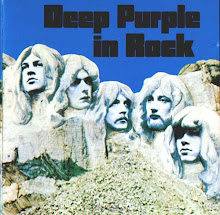My friend The Chairman is a ditherer and a bumbler and Captain Unreliable; he's half-blind, terminally unworldly, and can't make - or keep to - a plan to save his life. However, he does have a remarkable talent for discovering stuff. (It was he, for example, who first blundered upon Café Sambal, a great little Malaysian curry house that had just opened in our neighbourhood. He was, of course, unable to relocate it for some weeks....)
On one occasion - way back in our first year here in Beijing, the winter of '02 - he somehow happened upon a great public toilet. Well, it was still a Chinese public toilet, so not particularly impressive by the standards of some we know in 'the West', but pretty damned nice by comparison with what we were used to in the neighbourhood.
At that time, most Beijing toilets were still extremely primitive: trenches rather than urinals (and, as often as not, these trenches were out in the open air); the crappers all squat-style, scarcely ever a sit-upon (there was occasionally a token one - for "the disabled", rather than for us pernickety foreigners); seldom any tiling, only bare cement (often cracked and crumbling cement); seldom any stalls, just one big communal crapping zone; there didn't even seem to be any running water in them - maintenance guys would come around once or twice a week to flush them out with a hose. No, not very wholesome.
It was one of the major pluses of the preparations for the Olympics that all the city's public toilets were substantially upgraded. Now they all have tiled floors, partitioned stalls, and running water; most have at least one urinal (although the outside trench has not completely disappeared); many have a live-in (I kid you not!) attendant to clean them regularly; a few even have such exotic refinements as piped music and pot-pourri (the Beijing Tourist Authority introduced a 'star' rating system for toilets; I believe it goes up to '4 stars', but I've only ever seen '3 stars'; in a 4-star loo, I imagine they have a liveried flunky to wipe your bottom for you). This was an unimaginable transformation in the space of a few short years.
And what The Chairman had so fortuitously stumbled upon was a prototype - one of the very first of these new-style loos to be built in our neighbourhood, a good year or two before they started to become at all commonplace.
In fact, it was - in those days - even nicer than the common run of these new loos today because it was almost completely unused: nobody knew it was there! You see, it had been built - somewhat surreptitiously and very hastily - in a spot where nobody would have expected a loo to be: between two blocks of hutong housing, with only a very narrow alleyway - a rather dauntingly featureless canyon of bare brick, no more than about 18 inches wide - giving access to it. God knows why The Chairman would ever have ventured down there, unless there is some masochistic streak in him that seeks out likely places to get mugged.
On one occasion - way back in our first year here in Beijing, the winter of '02 - he somehow happened upon a great public toilet. Well, it was still a Chinese public toilet, so not particularly impressive by the standards of some we know in 'the West', but pretty damned nice by comparison with what we were used to in the neighbourhood.
At that time, most Beijing toilets were still extremely primitive: trenches rather than urinals (and, as often as not, these trenches were out in the open air); the crappers all squat-style, scarcely ever a sit-upon (there was occasionally a token one - for "the disabled", rather than for us pernickety foreigners); seldom any tiling, only bare cement (often cracked and crumbling cement); seldom any stalls, just one big communal crapping zone; there didn't even seem to be any running water in them - maintenance guys would come around once or twice a week to flush them out with a hose. No, not very wholesome.
It was one of the major pluses of the preparations for the Olympics that all the city's public toilets were substantially upgraded. Now they all have tiled floors, partitioned stalls, and running water; most have at least one urinal (although the outside trench has not completely disappeared); many have a live-in (I kid you not!) attendant to clean them regularly; a few even have such exotic refinements as piped music and pot-pourri (the Beijing Tourist Authority introduced a 'star' rating system for toilets; I believe it goes up to '4 stars', but I've only ever seen '3 stars'; in a 4-star loo, I imagine they have a liveried flunky to wipe your bottom for you). This was an unimaginable transformation in the space of a few short years.
And what The Chairman had so fortuitously stumbled upon was a prototype - one of the very first of these new-style loos to be built in our neighbourhood, a good year or two before they started to become at all commonplace.
In fact, it was - in those days - even nicer than the common run of these new loos today because it was almost completely unused: nobody knew it was there! You see, it had been built - somewhat surreptitiously and very hastily - in a spot where nobody would have expected a loo to be: between two blocks of hutong housing, with only a very narrow alleyway - a rather dauntingly featureless canyon of bare brick, no more than about 18 inches wide - giving access to it. God knows why The Chairman would ever have ventured down there, unless there is some masochistic streak in him that seeks out likely places to get mugged.
But we were mightly glad that he had found it. Mugging is, mercifully, almost unknown in Beijing. And this loo was such a huge step up in comfort and cleanliness from anything else in the vicinity that we would, if 'the call' was not too urgent, quite happily walk half a mile or so to make use of it.
It wasn't until nearly 18 months later that we learned the unhappy answer to the riddle of why this super-loo had been built in such an unlikely location. The main street it was hidden from - the street that had been 'my home' for my first two years in Beijing - was scheduled for 'improvement' prior to the Olympics. In the early summer of '04, with very little notice given to the residents, a massive road-widening and redevelopment scheme was begun. The row of houses (two rows?) that had separated the super-loo from the main road was demolished, and now it fronted directly on to the sidewalk alongside this suddenly bustling major thoroughfare. Evidently, someone had planned this all out quite a long way in advance; but the evicted householders only got about 6 or 8 weeks' warning - that's how they do these things in China!
The super-loo now stands prominent on the corner of the hutong where I have just begun to live (not nearly so "super" now that a lot of people are using it!), my landmark for guiding me home in the evening. That's why this anecdote has come to my mind again now.






No comments:
Post a Comment